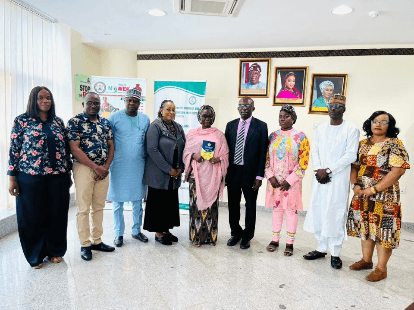Abuja, Nigeria: Amid growing concerns over recurring floods across Nigeria, the Federal Government has unveiled the National Flood Awareness Campaign, a strategic initiative aimed at raising public awareness on flood risks and promoting proactive safety measures.
Speaking during the campaign launch at Nyanya Market in the Federal Capital Territory, the Permanent Secretary of the Federal Ministry of Environment, Mr. Mahmud Kambari, emphasized the urgency of the initiative in light of the 2024 flood reports, which highlighted widespread losses in several states. He underscored the importance of early warning systems, effective waste management, and sustainable land-use practices in mitigating future disasters.
Mr. Kambari, who was represented by the Director of Erosion, Flood Control and Coastal Zone Management, Mr. Usman Bokani, stated that the campaign seeks to equip communities with practical knowledge and tools to prepare for and respond to flood events. He described flooding as one of Nigeria’s most persistent and destructive natural hazards.
“Flooding annually displaces thousands, damages vital infrastructure, and disrupts livelihoods across the country,” he noted.
He outlined several key interventions being implemented by the Ministry, including:
- Enhancement of Early Warning Systems: Collaborating with relevant agencies to deliver timely and accurate forecasts.
- Improved Drainage and Erosion Control: Regular clearing of waterways and construction of flood defense structures.
- Promotion of Afforestation and Land Management: Through projects such as the Great Green Wall and community tree-planting programs.
- Community Education and Engagement: Encouraging local participation in flood resilience efforts.
Kambari also called on citizens to avoid indiscriminate waste disposal, refrain from building on flood-prone areas, adhere to urban planning regulations, respond to early warnings, and support environmental conservation efforts. “Flooding is a shared challenge, but with collective action and preparedness, its impacts can be significantly reduced,” he stated.
Earlier, Mr. Bokani reiterated that factors such as rapid urbanization, climate change, and inadequate waste disposal are heightening flood risks in urban areas like Nyanya.
By Taiwo Olatinwo/ May 4,2025
Discover more from DnewsInfo
Subscribe to get the latest posts sent to your email.





